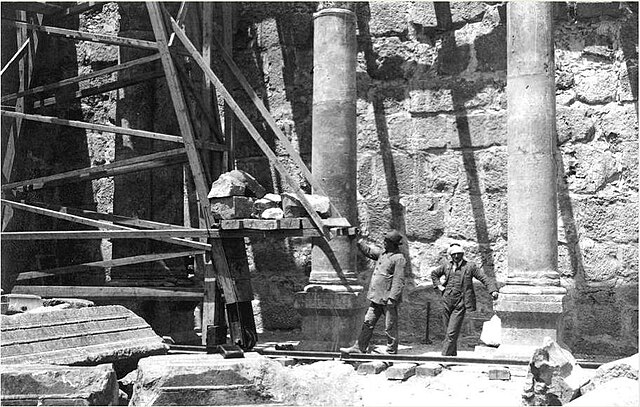Loading AI tools
German archaeologist From Wikipedia, the free encyclopedia
Carl Watzinger (9 June 1877 in Darmstadt – 8 December 1948 in Tübingen) was a German archaeologist, who with Ernst Sellin, worked on uncovering the site of the ancient city of Jericho (1907–09), and earlier, with Heinrich Kohl (1877–1914), conducted excavations at Capernaum (1905).[1]

Watzinger studied philosophy, archaeology and history at the Universities of Heidelberg, Berlin and Bonn, obtaining his doctorate in 1899 with the thesis "Studien zur unteritalischen Vasenmalerei". Later on, he worked as an assistant at the Royal Museum in Berlin. In 1904 he earned his habilitation in Berlin with a dissertation involving Greek wood sarcophagi from the time of Alexander the Great, titled Griechische Holzsarkophage aus der Zeit Alexanders des Großen.
In 1905 he became an associate professor of classical archaeology at the University of Rostock, where he specialized in studies of Hellenistic art and the archaeology of Palestine and Syria. He was later a full professor at the Universities of Giessen (1909–1916) and Tübingen (1916–1947).[2]
From 1911 to 1947 he was a member of the Central Board of the German Archaeological Institute (Berlin). He was also a member of the Austrian Archaeological Institute (Vienna) and an honorary member of the Griechischen Archäologischen Gesellschaft (Greek Archaeological Society).[2]
Seamless Wikipedia browsing. On steroids.
Every time you click a link to Wikipedia, Wiktionary or Wikiquote in your browser's search results, it will show the modern Wikiwand interface.
Wikiwand extension is a five stars, simple, with minimum permission required to keep your browsing private, safe and transparent.